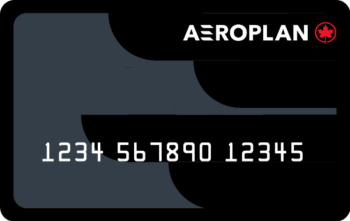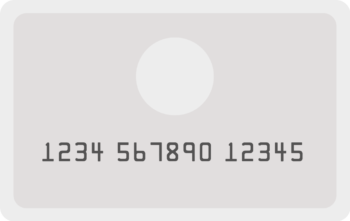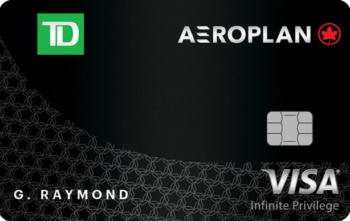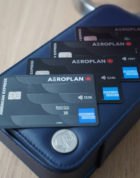As the most-visited European country among Canadian travellers, France was one of the many European countries that opened during the summer of 2020 before subsequently closing their borders in the fall.
France has since reopened once again this summer, as of July 18, 2021. Here’s everything you need to know if you’re planning an upcoming trip to France.
France Travel Restrictions
France’s entry restrictions are based on a “traffic light” system and whether or not you are vaccinated.
Technically, all fully vaccinated travellers are welcome in France; however, France’s list of accepted vaccines is noticeably shorter than the World Health Organization’s (WHO).
France accepts any combination (including mixed doses) of Pfizer/Comirnaty, Moderna, AstraZeneca (Vaxzevria and Covishield) and Johnson & Johnson.
Those unvaccinated or those without access to these particular vaccines will be subject to the “traffic light” system, in which all countries fall into one of France’s green, amber, and red lists, which then determine the border restrictions for any travellers originating in that country.
As Canada is on the green list, all Canadians can enter France regardless of vaccination status.
The full list of countries and their assigned colour is available on the France Government website.

How Can Canadians Enter France?
Travellers are allowed to enter France through all international airports, by train, and by sea, in the way of a cruise. As of October 2021, when departing Canada by air, travellers are required to present proof of vaccination.
Travellers coming from Canada must fulfill one of the following in order to enter France:
- Present proof of vaccination with any combination of Pfizer, Moderna, AstraZeneca, or Johnson & Johnson.
- The vaccination card from your provincial health authority will suffice.
- For two-dose vaccines, there is a mandatory seven-day waiting period after the second dose.
- For the single-dose Johnson & Johnson vaccine, there is a mandatory 28-day waiting period.
- For those with a history of COVID-19, only one dose is required with a mandatory waiting period of seven days.
- Present a negative PCR test or a negative antigen test taken within three days of departure of the first leg of the journey.
- Children 11 and younger are exempt.
Otherwise, all children aged 12 to 17 follow the same rules as adults regarding vaccination and testing for entry.
Furthermore, all travellers will have to complete a sworn statement that you have no symptoms of COVID-19 and you have not been in contact with a confirmed COVID-19 case.
However, for all practical purposes, proof of vaccination will be required if you’re visiting France. While vaccination is not required for entry, it is required to visit most public venues as of August 2, including long-distance buses, cafes, and other social establishments.
Full entry details are available on the French Government website.

Testing & Quarantine Upon Arrival
Travellers originating in green-list countries, including Canada, are not subject to a test on arrival, therefore removing any possibility of a quarantine.
Those not originating in green-coded countries must have a valid reason for travel. Arrivals from “orange” countries will be subject to a seven-day self-isolation, while arrivals from “red” countries will be subject to a test on arrival as well as a 10-day quarantine supervised by security forces.
Testing & Quarantine Upon Return
As of April 1, 2022, a negative test is no longer required prior to travelling back to Canada.
If you do need to find a test, France makes this extremely easy, with PCR tests available at all regional testing sites for €29 ($41). The full list of locations is available on the French Public Health website – just be sure to filter for “Tests antigéniques”.
Furthermore, both Paris Charles de Gaulle Airport (CDG) and Paris Orly (ORY) offer COVID-19 PCR testing at €30 with results within 1-2 hours.

Alternatively, consider purchasing a Switch Health RT-LAMP or antigen test kit for an easy remote testing option via telehealth video link.

Current Health Requirements in France
Across the vast majority of France, restrictions are almost entirely lifted. Regional authorities may implement their own rules; however, they have largely been the same since the health pass was introduced (more on this below).
Masks are required on public transit and in indoor public spaces such as shops. Masks are not required in places where a health is pass is needed. Outdoors, masks are required in spaces where social distancing is not possible, such as open-air supermarkets and railway stations.
There are no capacity limits in place for any events or venues.
The French “health pass” is the localized version of the EU Digital COVID Certificate, which is used to document and demonstrate one or more of the following:
- Proof of completion of a full vaccination schedule (as described above)
- A negative PCR or antigen test in the past 48 hours
- A positive PCR or antigen test demonstrating recovery from COVID-19 that is between 11 days and six months old
The health pass is required in virtually every aspect of life, such as malls, trains, and museums. In order to facilitate international tourism in France, non-European nationals can apply for a French health pass using the dedicated FranceConnect service.
In an interesting turn of events, the French Department of Foreign Affairs has affirmed that the health pass will be accepted as proof of vaccination in other European countries, akin to the EU Digital COVID Certificate.
Diligent travellers among us will have noticed that a few European countries are accepting fully vaccinated tourists, but only recognizing the EU Digital COVID Certificate as proof.
Therefore, as a result of the equivalency of France’s health pass to the EU Digital COVID Certificate, countries such as Malta or Norway are potentially open to Canadian tourists – but only after visiting France.

How to Get to France
Airfare to France remains fairly affordable through the fall of 2021 and spring of 2022, so a simple round-trip booking may be your best bet if you’re happy to fly in economy class.


If you want to travel more luxuriously, then the first loyalty program that comes to mind for most Canadians is Air Canada’s Aeroplan program, given the ease of earning and its favourable rates for long-haul travel.
Direct flights to Paris will cost 60,000 Aeroplan points from Toronto or Montreal one-way in business class; from elsewhere in Canada, you’ll have to connect through one of these two cities. Of course, the price can fluctuate due to the dynamic nature of Air Canada flights.


Alternatively, you can use Air France/KLM Flying Blue to fly Air France from Montreal, Toronto, and Vancouver to Paris.
Flying Blue miles can be earned via American Express Membership Rewards at a transfer ratio of 1 MR = 0.75 Flying Blue miles.
Flights from Montreal start from 53,000 miles one-way in business class, Toronto from 60,000 miles in business class, and Vancouver from 59,500 miles one-way in business class.

And if you’re an aspirational traveller looking to celebrate your first post-pandemic trip with some luxury flying, consider aiming for Lufthansa First Class from a US gateway airport via Frankfurt or Munich for 100,000 Aeroplan points.

Both the US and Germany are currently on France’s “green list”, so you’ll have no trouble completing this itinerary and entering France without quarantine.
However, because you must arrive directly via countries on the green list in order to avoid a quarantine, I don’t recommend any itineraries that are overly convoluted, especially considering that countries on France’s green list are subject to change.
Conclusion
France is open to all Canadian travellers, although I only recommend visiting if you are fully vaccinated, as the health pass is a requirement for a majority of tourism-related activities as well as daily life.
France’s lack of restrictions outside of the health pass, along with their declining COVID-19 case counts, should contribute towards a relatively worry-free trip. Still, this will depend on your personal comfort level as a traveller during the pandemic era.
As always, you can refer to our Travel During COVID-19 Resource for Canadians for the most up-to-date information on travelling in the pandemic era.




















